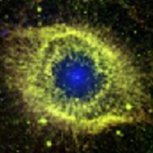I'm working on my first game story - a futuristic sci fi/military action adventure - that is coming to me in spurts, not linearly. I really want to build this story in a logical, straightforward way. But for some darn reason my imagination brings me ideas so scattered, so randomized, in puzzle piece style that I don't know what to stick with. And this is a game story that I've imagined for over a year and a half. Perhaps two years. Very slowly surfacing. Its sort of annoying how its cooking in my mind. Anyone have problems like this? What do you do to combat them? Write it in small spurts, experimenting with ideas, or work on other projects?
I need inspiration from my fellow writers
You may have heard the saying: "Want to write well? Read good writing." Another variation: "Want to write well? Steal."
Don't literally steal. In fact, here's how to steal well, and it's hard. Read great writing. Then through lots of reading, get a feel for what astounds you. Then analyze how you feel. You might be experiencing strong empathy for a character. Or wonderful rhythm. Terrific ambience. Whatever it is, try and understand how the author does it. Dissect it. Discuss it with fellow readers. Propose methods to conceive of similarly great material. Why is this author great? What is she doing?
I don't recommend reading "How to write" books. I tried that with screenplay writing. I consider most of that stuff garbage. What I consider garbage is three act structure and all the basic things such as conflict, climax, twists, and so on. Yes, some conflict is necessary. But that's obvious. Bear in mind conflict isn't always fighting. It can be inner turmoil, family disagreements, and so on.
Less story, more observation.
Consider the difference between bestsellers vs. literature. I mostly see one level in bestsellers: the story. I see three levels in literature. On the surface in literature is the prose. In the middle is the story. Underneath it all is the observation. You may call it the theme if you want, but I prefer the term observation. You're making an observation about something. Hopefully it's about the human experience, sometimes referred to as the human condition. There are many observations. It's up to you to find them, live them, etc. Examples: you don't always get what you want; feeling as though you are on the outside watching others live their lives; The universe is beyond our comprehension; We live in our fantasies until reality must be confronted; etc.
There is much to be gleaned from film, as in writing. That is my direction. But just like reading good writing, you must watch good films to really grow. As explained above, in the case of bestsellers vs. literature, the same applies to film. Hollywood films are the bestsellers. They mostly have one level: the story. Go beyond Hollywood. You'll discover three levels which analogize to the three levels in literature: On the surface of literature is prose, and on the surface of great films you'll find a unique and stylish grammar. In the middle of both literature and great films is the story. And underneath both is the observation.
A film's grammar is its sequencing of shots, its rhythm. Most all Hollywood films use what you might call the standard film grammar. It's nearly invisible, just like the prose is nearly invisible in bestsellers. Authors of literature typically develop their own unique prose which has a certain style. Great films have unique grammars unto themselves, or more accurately, unique grammars unto their directors. It's identifiable once you've seen it, and thus the director is identifiable. There are exceptions in Hollywood, but it isn't the norm.
By watching better films, I have become more attuned to their great components. Of course we all know how to read a book and watch a film, but you can become a better reader, and a better film viewer. Some of the elements I have discovered in film (better films) can be helpful to your writing. The are:
- Getting the audience to feel strong empathy for a character or characters
- Character goals are typically unfulfilled
- The use of repeating motifs
- Book ends ( a term I use for a film to be symmetrical with regard to beginning and ending). Think of coming full circle.
- Rhythm and timing at multiple levels
- Scenes or shots out of left field. As the author or director, do not consider it your responsibility to explain these scenes to your audience. People want to naturally connect the dots. Let them puzzle over it.
- Metaphor
- Things don't wrap up perfectly in the end.
- Ambiguity
Let's look at a concrete example of what I've been saying above. As you may know, director Barry Jenkins' film Moonlight won both Best Picture and Best Adapted Screenplay at the 2017 Academy Awards. Jenkins co-wrote the film and directed it. Co-writing and directing is one aspect of auteur theory. Anyway, the point is Jenkins' process. Jenkins was taking inspiration from filmmakers the same way I was, and the following video resonated with me, because I was taking inspiration from the same filmmaker before I ever knew of Jenkins. What I'm asking you to take away from this is how Jenkins explains that it was seeing new and different things in cinema that fired him up, and that's where I say true learning starts.
Jenkins inspiration was Wong Kar-wai, and although he doesn't mention it in the video, another inspiration to Jenkins was Hou Hsiao Hsien. Hou and Wong are both incredible filmmakers. In fact, one of the two films Jenkins discusses was voted the greatest film of the 21st century by critics worldwide, and voted the same by They Shoot Pictures, Don't They?
VIdeo featuring Jenkins discussing two films:
Is what your experiencing kinda like a form of writer's block? If so one of the best ways to combat it is to watch A LOT of movies and read A LOT of books. Think about bishop_pass and their comment on "stealing", then think about how science progresses. In the scientific community, a science is improved upon by using other features in other people's work. They build on to other people's theories and use other people's research to perfect their own. See video game writing as a science. Build on pre-existing ideas and make them unique. Make them your's.
It might also help to start with the smallest and most basic concept, and build on it bit by bit. This will help bring you more and more options and ideas. For example: for your futuristic sci fi military action adventure game, you have your genre. Now, is it 2d or 3d? Say you decide it is 2d. Do I want a game kinda like metroid? Yeah man Metroid is pretty boss. Then take your Metroid game and make it unique. What elements of the game do YOU think would be cool? What would have made Metroid better? Make the game yours, nut don't be ashamed to use the elements of other games for the betterment of your own.
On 11/5/2017 at 12:05 AM, Matthew Birdzell said:[my story] is coming to me in spurts, not linearly. I really want to build this story in a logical, straightforward way. But for some darn reason my imagination brings me ideas so scattered, so randomized, in puzzle piece style that I don't know what to stick with.
Have two files - one for your main story, and another for a collection of other thoughts. Anything that doesn't obviously fit your story should go into the other file. The other file may seem random but it has value - you can always reread it and find things you can use.
6 hours ago, Tom Sloper said:Have two files - one for your main story, and another for a collection of other thoughts. Anything that doesn't obviously fit your story should go into the other file. The other file may seem random but it has value - you can always reread it and find things you can use.
Never would have thought of this. Really good advice. ![]()
What I often do is setting up a MediaWiki on my local computer (using XAMPP). This comes with a few psycho tricks:
1.) It forces you to go over your work in a very passive manner without requiring of you to create anything new at that point.
2.) Through its cool cross referencing mechanic, it may reveal connections that you might not even have thought about before.
3.) It's a very cool way to organize and categorize your stuff in the way you want and find most suitable. You may use in-story categories like "places", "space ships", you name it (was that a pun?) as well as productive categories like "important" or "side information".
4.) Sometimes (especially after a longer break), it's simply fun to browse through your work and watch the whole thing grow. There are plugins to count the number of articles and so on to keep motivation up. While doing so, I occasionally run into questions, find missing links. These are the things that make me think again. "What could be the connection between the two?", "Why did this happen the way it did?" or "What would be the logical consequence of that event?"
This might be more helpful for world building than for story writing but as your story takes place in that world, it does help nonetheless.






